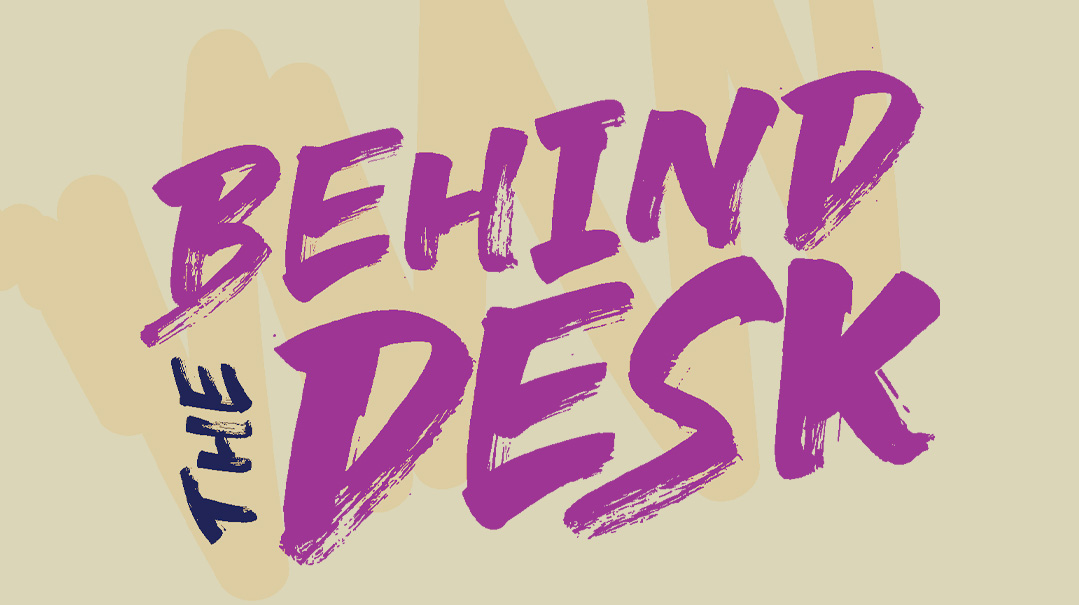Reaching Higher
| May 31, 2022Teens share experiences of personal growth and sacrifices made, and the benefits they’ve seen

A Musical Journey
Last year my parents decided to give up listening to all secular music as a zechus for something. (My parents are baalei teshuvah, so they grew up listening to that music.) My parents didn’t force me to join them. But since both my parents didn’t listen to the music anymore, we couldn’t play it in the house. I also became more conscious of the music I played, and I made my own decision to give up secular music too.
I then began exploring the topic of music. There was one particular interview I heard, with Yaakov Shwekey, that resonated with me. He explained how music really penetrates and can have a strong impact on the neshamah. I began to reflect on some of the music I had been listening to and realized there was so much garbage in it. A lot of the content — the messages in the songs — were totally not relevant to me or my life, and for that matter, were completely against our values. Once I recognized this, I gained an appreciation for our Jewish music with its depth and relevant messages.
Making the decision was hard, but I don’t regret it because I know it was the right thing to do. It’s been a while since I revamped my playlists and deleted all secular artists. And to be honest, it hasn’t been smooth sailing. I’ve slipped up since then, but I’m on the right track. Telling myself “I don’t listen to non-Jewish music” kind of helps.
My parents took this upon themselves as a zechus to be able to buy a house, and Baruch Hashem we were able to buy a house that we’ve since been enjoying immensely. So that was huge!
As for my personal life? I’ll be honest: I haven’t seen any direct benefits or earthshattering rewards or recognition…. But I realize that this isn’t like a one plus one equals two equation. That’s not how the world works. That’s not how Hashem works. However, I have become a more refined person, and I know how to better define my values, so in that way I’ve gained so much.
This year, I decided to take my kabbalah a step further, and gave up music during Sefirah even when exercising. I usually exercise to fast-paced Jewish music or music without lyrics, and giving that up was really hard for me. I’ve heard that there may be a heter for listening to music while exercising, specifically if it’s a song I don’t like, but I’ve tried to stay strong. It might be a maybe-okay thing to do, but for me it’s really not. I feel good that I’m doing the right thing, especially because any emotional value that would come from listening to music would be with a guilty conscience.
I know I’m doing the right thing, and nothing feels better than that. That feeling has been my greatest reward.
Esther R.
Locking My Phone, Unlocking Life
MYschool, Bais Yaakov High School of Detroit, recently introduced an incredible technology program called “Time of Our Lives.”
In previous years it worked differently: They privately went over to several girls in the school and asked them not to use their cell phones for a full week. Those girls had to keep this initiative a secret and couldn’t tell anyone about the program during that week. This year they decided to challenge the entire school to turn off their phones for a week. Phones could be used for talk only — no texting or any other features. This challenge was inspired by a high school located in Passaic. Our school told us that if another high school could do it, then so could we!
There would be no reward for the participants, but the real reward would be the time we would gain for ourselves. It was a totally voluntary challenge: We give up our phones and we gain more time, minimize our connection with technology, and connect with Hashem and those around us.
I knew it would be hard. I have a filtered smartphone, and I use it a lot. Totally giving up my phone would mean no talking to my friends and disconnecting from my camp friends. I was also used to using some of the features on my phone such as the camera, alarms, and Tehillim.
Despite the lack of a physical reward from the school, I was super-motivated. I knew that the sechar for limiting my technology use was unimaginable, and strengthening my relationship with my family and friends was also a major plus. So worth it!
I was allowed to talk on my phone but nothing else. I thought about that and realized that it was impossible. Once I had the phone in my hand, there were just too many temptations at my fingertips, and it was too easy to get swept in.
For example, some nights as I’m dozing off I pick up my phone to set my alarm, and hey, once the phone is in my hand, let me just look at some pics. Then I notice that a camp friend just texted me, and hey, let me just text my other friends, and before I know it, an hour goes by and I should have been asleep already!
So when it came to using my phone, it had to be all or nothing. I decided it would be nothing. I powered my phone off and locked it in a drawer in my closet.
I never really thought that I used my phone that much. I mean, what do I do already? My phone is filtered, and I don’t have any social media or Instagram accounts. I text, WhatsApp, and use a few other features. But still, on the first phoneless day, I felt a physical burden being lifted off my shoulders.
Why is this? I wondered. Shouldn’t the opposite be true? Shouldn’t I feel light and free with a phone?
Apparently not. I felt so light and free without my phone.
I gained so much that week. I felt amazing. I was more aware of my surroundings, and I had more time to do things. For example, math homework usually took me about two hours to complete. But with no phone sitting next to me, it took me 10 to 30 minutes each day, and I was able to go to bed earlier.
At one point I said to myself, maybe I should do this more often!
The positive peer pressure of everyone else in my school going off their phones made the whole thing easier. At least I knew that I wasn’t missing out on anything with my school friends. (It was only the camp friends that I couldn’t respond to.)
At the end of the week, my school made a closing event with a kumzitz. Every few minutes, between songs, they gave the microphone to another girl who shared her experience with limiting her technology use.
When it was my turn, I shared my own positive experiences, and then I told them about an offer my father had made me.
My father saw the impact of my phoneless week. He decided that it was so valuable that he’d buy me a really huge present (I’m not mentioning what it was because I don’t want to set any standards here!) if I kept it up throughout high school! He made a deal with me: If I permanently gave up my smartphone (he’d get me a flip phone instead), he would buy this thing for me before eleventh grade.
As soon as I shared this, the whole school starting cheering for me. “Yeah! Oh my gosh! Go for it!”
One teacher picked up the microphone. “So, what does everyone say? Should she do it?”
Everyone was cheering “YES!”
I was hesitant. I mean, seriously? I pulled it off for a week, but could I last through four years of high school with just a flip phone? So many girls came over to encourage me. Since many girls in my high school have flip phones only, they were able to offer real encouragement.
So for now I’m taking it day by day. But if I make it to finish line — twelfth grade with no smartphone — I know that I’ll be a different person.
—Ariella Gottfried
Ready, Set… Read!
Before Rosh Hashanah, I began thinking about a kabbalah to take on for the upcoming year. I realized that sometimes I have certain thoughts going through my head, and I think, “Hey where did that thought come from?”
Then I realize that there must be a negative influence causing those thoughts, and it hit me: It was the non-Jewish books I was reading. I realized that we’re in this world to grow, and at a certain point, I just had to get rid of the things that were blocking my growth, and even making me fall. I decided to try to give up on reading secular books.
It wasn’t easy. Sometimes I thought, “Why in the world am I doing this?”
This is really hard for me because I’m obsessed with reading, and (it seemed like) I had basically read all of the good Jewish books out there already. I decided to take it one step at a time to make it more doable for myself. I gave myself a time frame to work with: No secular books until January. (This way it wasn’t like saying no secular books ever again.)
I figured that in January I’d reevaluate and see how it was going. Over the months, I tried to remind myself about what kind of person I wanted to be. Even when I wasn’t feeling so spiritual, I said to myself, “I did this for so long already, and I have to keep on going! Go, me!” And other times I’d remind myself that for now I wasn’t going to read it, and that really helped.
The months went by, I managed, and I suddenly realized I had reached January, and I was going strong! So strong, in fact, that I kept going.
As I continued, I no longer had that official measurable goal in front of me, so there were times when I slipped up and read something that I wasn’t quite proud of. But lately, I’m trying to get back on track and restrengthen myself. It’s pretty hard because I have a close friend who reads lots of interesting secular books and tells me all about them, which of course makes me want to read them too.
When I shared this struggle with my mother, she helped me by buying me some really good Jewish books, which was amazing (there is a great selection out there, after all). But it still can be hard. Now that I’m back on track, I’m staying firm because the difference that I see in my life is huge. In retrospect, I see how the secular books were subtly having a negative influence on me, and I want to get rid of that. Since I’ve strengthened myself in this and given up reading so many books, I’m feeling more open to growing in ruchniyus and not as distracted by inappropriate thoughts.
—Miriam
Giving and Growing
DO you know any teens who would willingly give up their Sunday mornings? I don’t! At least I didn’t until I did it.
Sleeping in on Sunday is what most teenage girls look forward to the entire week. But when I was asked to volunteer in a program for children with special needs every Sunday morning, I figured I’d give it a try. I had worked with children with special needs before, and I knew how much I would gain from it.
Volunteering on Sunday morning would be giving up on my free time, but the gain was amazing. I went that first Sunday and enjoyed it so much that I’ve never looked back. Working with special needs children has taught me a ton. I’ve learned patience, because these children work a little slower than most and need more support. I’ve learned to form genuine connections, because these children create connections based on internal character traits and not external attributes. I’ve gained intuition, because some of the children are nonverbal, and I have to learn to relate to them in other ways. I’ve also become part of an amazing community of volunteers.
Sometimes you just have to take the plunge. Something may seem difficult, but once you try it, you may just realize how much there is to gain.
—Faigy
Teen to Teen
Teens share their thoughts on growing and coping with peer pressure
— Remember you’re not alone. Are you struggling with something? Chances are this is something that we all (at least many of us) struggle with.
— Take on something with a time limit. If you say, “Okay, I’m stopping this forever,” it’s much harder. First challenge yourself to do something for a set amount of time, then, when you see that you can pull it off, try to continue. When it gets hard, take things one day at a time, and focus on not “breaking the streak.”
— Fake it till you make it. Just continue, even if you’re not exactly “feeling it.” The feelings will eventually come.
— Remember that you’re a work in progress (we all are!), so messing up is genuinely okay and expected. Just don’t let that get you down. Pick yourself up, and you will reach higher than ever. Don’t let a little slip throw you completely off.
— Peer pressure is really hard. It is always going to be here because Hashem wired us to care about our image. Connect with others that share your values. Having others that you can relate to is so helpful.
— Most of the time you won’t get lots of outside recognition (sometimes you will, but not often). Learn to be proud of yourself and tell yourself that you’re doing a great job. I am amazing for doing this!
— At the end of the day, people like others who are genuine. If you try to be authentic, people will respect you.
— When you want something to last, as soon as you get inspired, concretize it by taking something small on yourself. Then, hopefully, that spirit and enthusiasm will last.
— There’s a great quote, “If you don’t stand for anything, you’ll fall for everything.” It’s a balance between firmly keeping your ground on the boundaries you want to stick to and still respecting others who don’t do the same.
— To cope with peer pressure, I’ve found that it helps when you and your friends know that you genuinely care for each other, no matter where you are holding in life. Don’t push things on each other.
— Most people will respect you for being strong if you’re doing it in a way that isn’t projecting any criticism on others.
— You’ll never know what you’re capable of until you actually try it! I’ve surprised myself many times.
— There might not always be a physical motivation, but knowing the effects (in this world and in the next!), and the good feeling and strides in self-improvement you’ll gain, is a pretty good reward. I like to focus on how good I’ll feel when I accomplish a major goal.
— When you slip, remind yourself that you’re human and mistakes do happen, but it’s never a reason to give up. Keep trying, and you can always do better.
Personal Growth and Peer Pressure
Q & A with Tali Arieff, LCSW
Can I go against the tide when all of my friends are all doing something, and I want to be a little better? How can I withstand the peer pressure?
We need to be honest with ourselves. Peer pressure is a fact of life, and we’re all affected by it. The Rambam says the impact of your environment is so intense that a person has a halachic obligation to move to a community of good, upright people. In the teen years, the influence of peers is especially acute. Peer pressure is a reality that’s not going away.
The best advice I can offer is to paraphrase the Rambam and suggest you find yourself a good group of friends. Their growth mindset will influence you positively, and you’ll grapple with this less.
That being said, there will always be a point of divergence, where you have to be true to your inner core. So make a habit of being yourself in less high-stakes moments:
Develop enjoyment in spending time alone.
Pursue a hobby or interest that is unconnected to peers.
Read thought-provoking and inspirational books.
Listen to shiurim, and let the ideas percolate inside your own mind without discussing them with friends right away.
Develop your own sense of style in clothes or accessories that’s stylish but still unique to you.
This way, when you want to be your better self, you’ll already have a developed “self” to work with!
Shira lives in a small out-of-town community. She was in touch with me because she doesn’t have too many friend options, which is hard. As we spoke, we realized that her situation has an inherent advantage: She is forced to develop her inner self and find ways to keep herself engaged and entertained, without relying on others. Shira still wishes for more peers — she lives for camp and can’t wait for seminary — but she appreciates that her maturity level and internal world are much more developed than other girls her age.
What happens when my friends and classmates poke fun at me for “being a goody-goody” and “better than us”?
This is really a question about relationships in general. It’s not specific to “being a goody-goody.” Because if you don’t develop an inner core of confidence, peers will always have a way to hurt you — about this or something else.
As in extreme cases, like bullying, the key is to act confident in yourself and your choices. At the same time, be warm and friendly and respectful of others — don’t push your growth in their faces, and truly appreciate them for their own inner journey. Honestly, if you can do this, after a bit of initial teasing, your friends will likely drop the issue and accept you. Remember, some good-natured teasing is part of teenage friendships, so don’t take it too seriously.
Also, if growth is coming from the “inside out,” if it’s coming from a place of real inner work and refinement, it turns into something others naturally respect and is also much stronger and longer lasting.
Ariella* is in tenth grade. She’s in the uncomfortable but respect-worthy position of aligning with a more serious hashkafah than her family and community. Unfortunately though, she doesn’t get much respect. Why? Because she often pressures those around her to take on her hanhagos and can be condescending. Then she wonders why they’re annoyed with her, why they don’t see things how she sees things. I worry about her growth lasting; it seems more focused on others perceiving her as “right” and “good” than on developing herself and her relationship with Hashem.
Dina* looks, on the outside, a lot less frum and serious about Yiddishkeit than Ariella. In fact, she does lots of things that Ariella wouldn’t dream of doing and that her school and family would rather she not do. But Dina has an amazing, strong, internal red line which she won’t go past. She has respect for herself and her values and won’t violate them even when others in her circle of friends are all doing something she doesn’t want to do. She has a growth mindset, and I know she’s on her way up, because her growth comes from a place of confidence, honesty, and self-respect. Her friends may not be where she is, but they don’t make fun of her, because she comes from a place of sincere inner conviction.
How can I deal with the sinking feeling after “blowing” a kabbalah that I began working on so hard to achieve? Is all lost?
Recently, we had a guest over. I offered her a piece of cake, but she demurred, saying she was trying to eat healthier. One of my young kids turned to her and said in a cute, innocent voice, “You’re also trying to eat only healthy stuff?!” The guest answered, “Always,” and I was struck by the cleverness of her response.
It was clever because if you think you’re going to just try really hard and eat healthy for a short period of time until you start feeling more energetic, and that once you hit that goal you can go back to eating poorly, any nutritionist will tell you to adjust your mindset. Eating healthy is about making lifestyle changes, about learning to try to make good choices as often as possible, and about expecting to slip up sometimes and to have some ups and downs. As long as you make the ongoing choice to try and always make good choices, you’re doing well. So indeed, it’s “always.”
Personal growth works the same way. When you take on a kabbalah, it’s not realistic to expect it to be a one-time battle, to think that once you conquer it for a stretch, you’ll never slip. In reality, growing is a journey with ups and downs. Over the years, your baseline level will b’ezras Hashem continue to rise, but it’s not a straight journey up. As long as you’re trying, you’re winning. We achieve greatness because of those slip ups, says Rav Hutner; the fight back from the low point of a disappointing fall is essential to the process of growth and not an aberration.
* Names changed
Tali Arieff LCSW RPT maintains a private practice for kids, teens, and young adults in Brooklyn, NY. She can be reached through Teen Pages.
(Originally featured in Teen Pages, Issue 913)
Oops! We could not locate your form.







